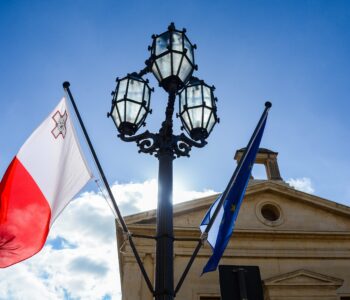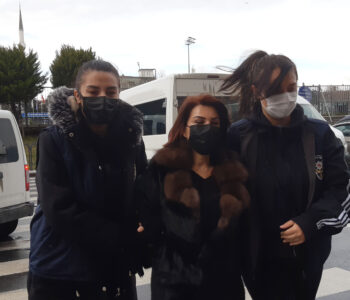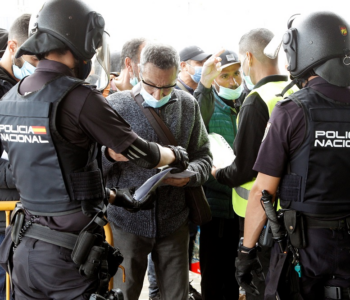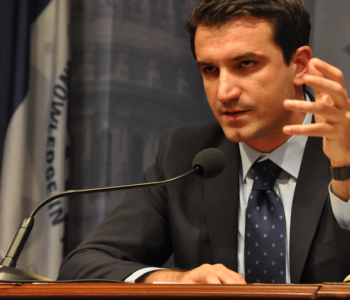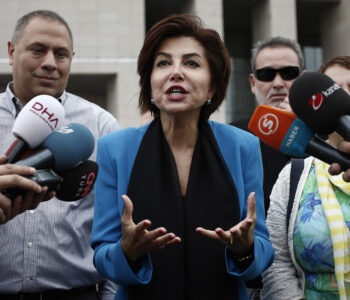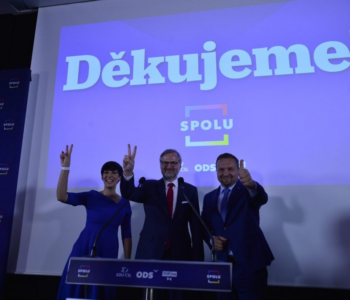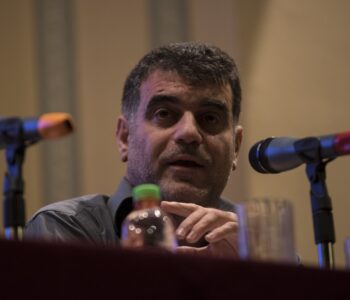
Hungary: Government bypasses court order on journalists’ hospital access
Hungary: Government bypasses court order on journalists’ hospital access
Hungary is the only EU member state not to give media access to hospitals during pandemic. The IPI global network today condemned a Hungarian government decree which – despite a court order – ensured journalists from independent media titles could continue be barred from reporting from inside hospitals. IPI called on the Fidesz government and its pandemic management body to approve future requests for journalists to access health facilities and stop hindering the media from doing their jobs and reporting on the realities of COVID-19.
Since the beginning of pandemic, representatives of the independent press have been barred from filming or reporting from within hospitals and their COVID-19 wards. In March 2021, this led to an unprecedented appeal from the the editors of 28 media outlets to the prime minister that the rules be changed to allow the media to record within health care facilities.
This appeal was rejected by the PM, who said that such a move could lead to the spread of “fake news”. Since the start of the pandemic, the government-controlled public television and the state news agency have been the only media permitted to film inside hospitals. Independent newsrooms have requested access on dozens of occasions but all were rejected by the government’s Department of Human Resources (Emmi).
This led Telex and the Hungarian Civil Liberties Union (HCLU) to launch legal action against the government on the basis that the order disproportionately affected media freedom. The Metropolitan Court initially sided with the government last year. Following an appeal, on January 27, 2022, the Supreme Court sided with Telex and ruled that Emmi could not bar media from reporting from within hospitals, as that power lay with individual hospital directors.
However, just two days later on January 29, the government passed a decree which bypassed the Supreme Court’s ruling. It instead determined that only the government centre in charge of managing the pandemic, the Operational Tribunal, could decide on press access and accreditation. The rule came into effect on February 5, 2022, leading to a fresh outcry about government interference from the country’s remaining independent media titles.
“This government decree is another shocking example of the Hungarian government’s efforts to block media’s access to public health information and hinder the ability of independent media to do their job” said IPI Deputy Director Scott Griffen. “During the pandemic, media across Europe have been able to report from within hospitals and speak with front-line health workers. This has been vital for showing the human face of the health services and for building trust in state health measures, as well as allowing for frontline staff to raise concern when necessary and to foster healthy debate on health policy.
“In Hungary, however, despite numerous appeals, journalists have repeatedly been barred from visiting hospitals, limiting transparency and leaving reporting from within health facilities to state media, which sorely lack independence and impartiality. There is no other country in the European Union right now which still has such restrictive hospital reporting policies in place as Hungary.
“IPI continues to condemn the Hungarian government’s efforts to ban journalists from hospitals. That a government decree was used to bypass a ruling from the Curia is a stark example of the length which Fidesz will go to retain control over the COVID-19 messaging ahead of the upcoming elections. We stand with independent journalists in Hungary in their demand for access to information, which is a fundamental right. It’s shocking that this is still up for debate in an EU member state.”
The government decree means the Operational Tribunal will have full responsibilities for deciding on which journalists and TV crews can film or record interviews on the premises of health facilities. That body will have the power to overrule directors who feel it is acceptable to welcome media into their facilities they head.
During the pandemic, journalists working for what remains of the country’s independent media operate in an extremely challenging environment for accessing public information or questioning public officials. While media critical of the government are shunned for interview requests, the prime minister meanwhile gives expansive interviews to state-controlled media. After the media sent an open letter to the PM in March 2021, government spokesman Zoltan Kovacs accused “left-wing portals” of spreading “fake news” to embarrass the country’s health care system.
At different points during the pandemic, doctors and other healthcare professionals have been forced to speak with media off record to raises concern about their institutions’ capacity to handle rising cases and an influx of patients. The government decree came amidst a general election campaign for the April 3 election.
This statement by IPI is part of the Media Freedom Rapid Response (MFRR), a Europe-wide mechanism which tracks, monitors and responds to violations of press and media freedom in EU Member States and Candidate Countries.



